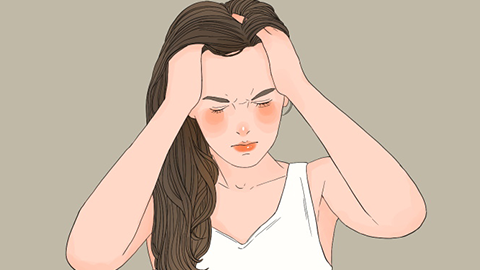What causes schizophrenia?
In general, schizophrenia may be caused by a combination of factors such as genetic susceptibility, neurotransmitter imbalances, structural brain abnormalities, stress-induced triggers, and infections or immune system dysfunctions. It is recommended to seek medical attention promptly, identify the underlying cause, and undergo symptomatic treatment under a doctor's guidance. Specific explanations are as follows:

1. Genetic Susceptibility: Individuals with a family history of schizophrenia have a higher risk of developing the condition. The disease arises from the interaction between genetic and environmental factors. Those with a family history should undergo regular mental health screenings, avoid prolonged exposure to high-pressure environments, and maintain a regular lifestyle to strengthen psychological resilience.
2. Neurotransmitter Imbalance: Dysregulation of neurotransmitters such as dopamine and serotonin can lead to abnormal perception and cognitive function. Follow medical advice to use medications like risperidone tablets, olanzapine tablets, and quetiapine tablets to regulate neurotransmitter levels. Combine medication with neurocognitive training to improve brain function.
3. Structural Brain Abnormalities: Poor development or impaired function in brain regions such as the hippocampus and prefrontal cortex can affect information processing. In addition to medication, repetitive transcranial magnetic stimulation (rTMS) therapy may be used to promote functional recovery of affected brain areas. Family members should provide daily safety supervision.
4. Stress-Induced Triggers: Severe stressors such as major trauma or job loss can disrupt psychological equilibrium and increase the risk of onset. After experiencing stressful events, individuals should promptly seek psychological intervention. Supportive psychotherapy can help manage emotions, and short-term use of lorazepam tablets may be necessary to relieve anxiety when needed.
5. Infection and Immune Dysfunction: Prenatal infections or autoimmune disorders may interfere with brain development and increase the likelihood of developing schizophrenia. Pregnant women should take preventive measures to avoid infections. For those diagnosed with infections, follow medical advice to use antibiotics such as cefaclor capsules, amoxicillin capsules, or azithromycin capsules to control infection, along with psychiatric medications as part of comprehensive treatment.
Daily life should include a supportive and harmonious environment, avoiding criticism and emotional triggers. Encourage patients to participate in appropriate social activities and maintain social connections. Strictly adhere to prescribed medication regimens, attend regular follow-up appointments, and adjust treatment plans as needed to reduce the risk of relapse.




